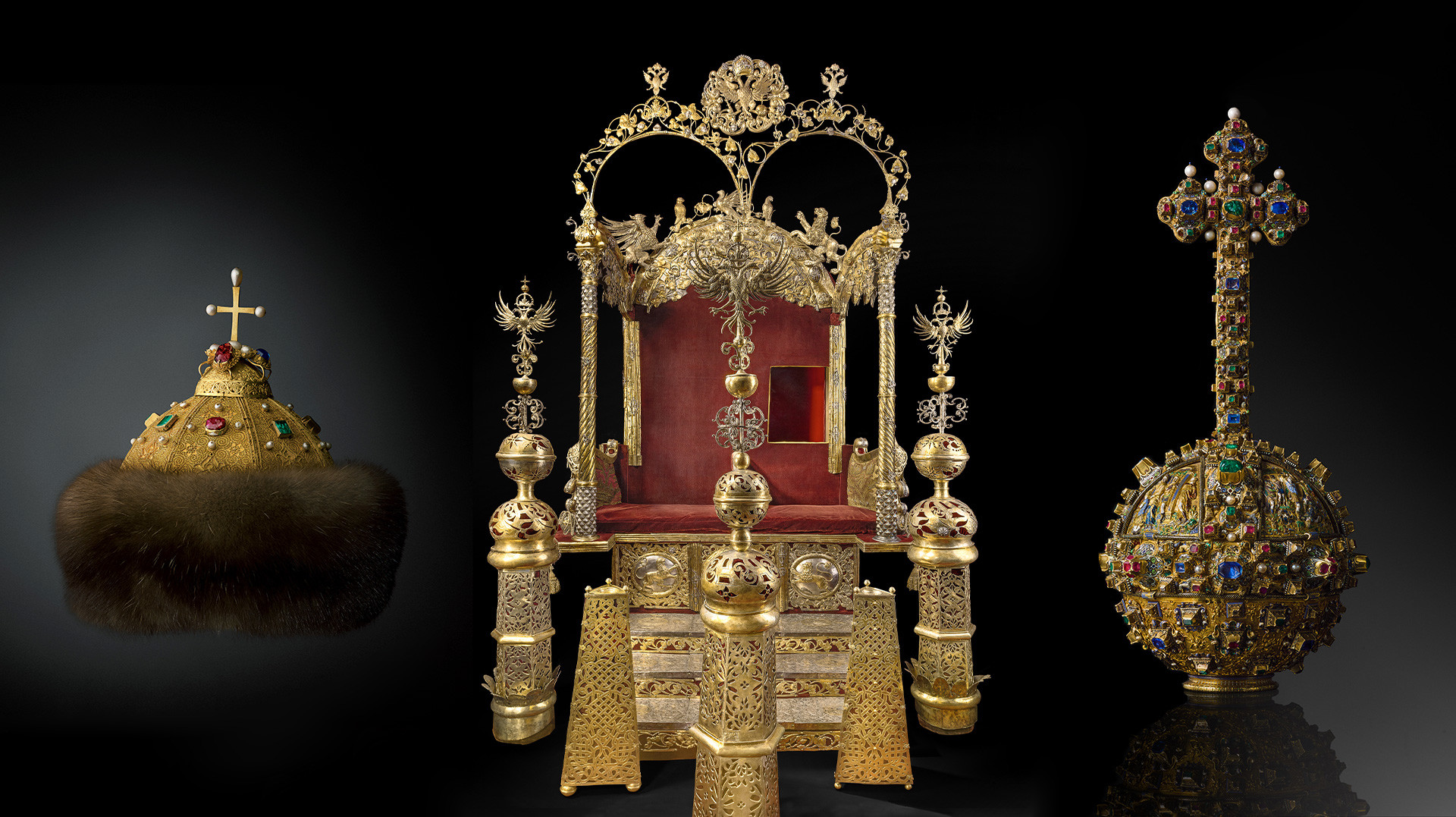
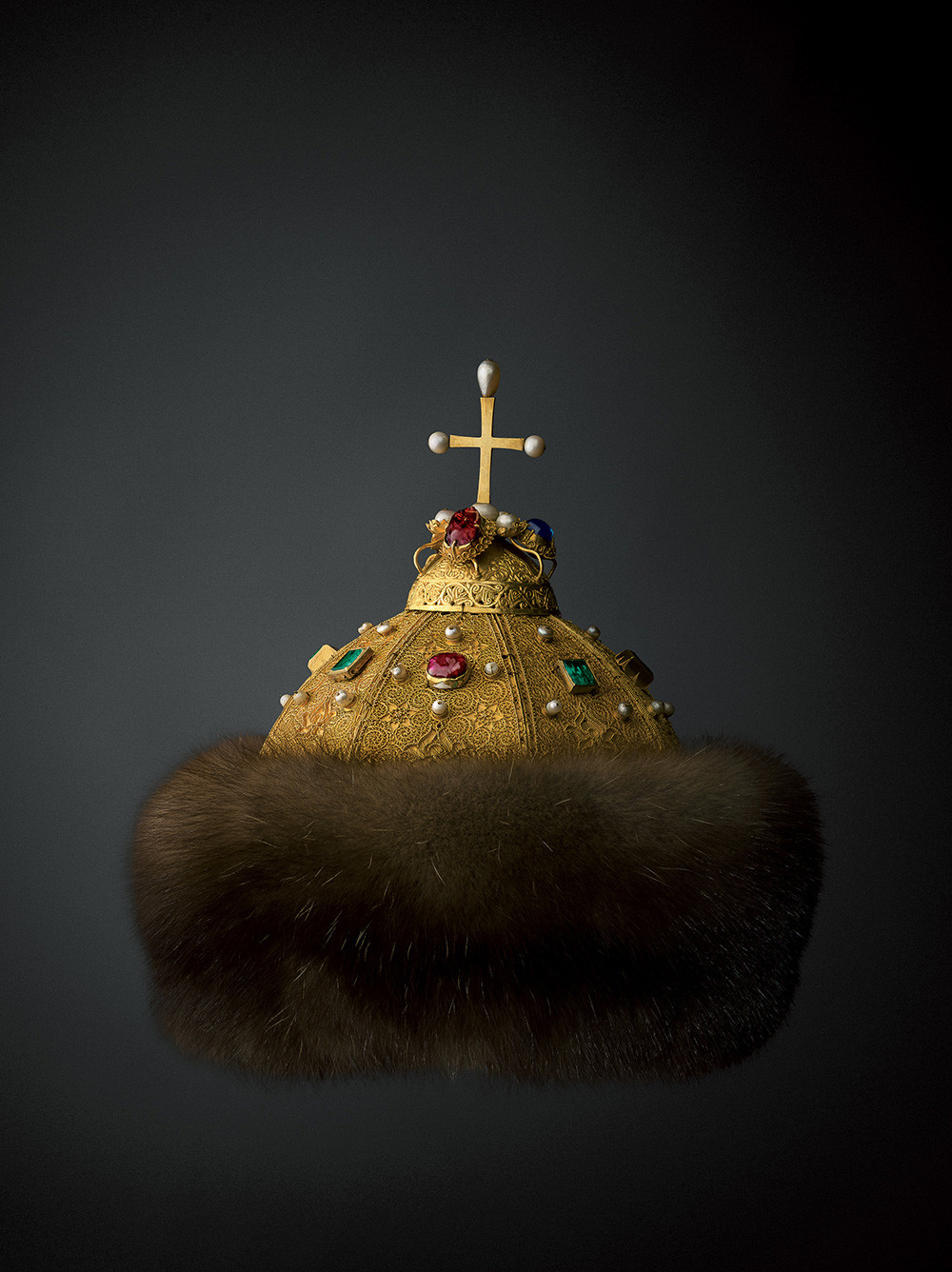
This is perhaps the most famous of the ceremonial headdresses of the Russian tsars. It is made of gold, emeralds, rubies, spinel and pearls, and trimmed with sable fur. Most scholars are inclined to think that the skullcap was a gift from Golden Horde Khan Uzbek to Moscow Prince Ivan Kalita, and was created by Golden Horde jewelers in the late 13th century.
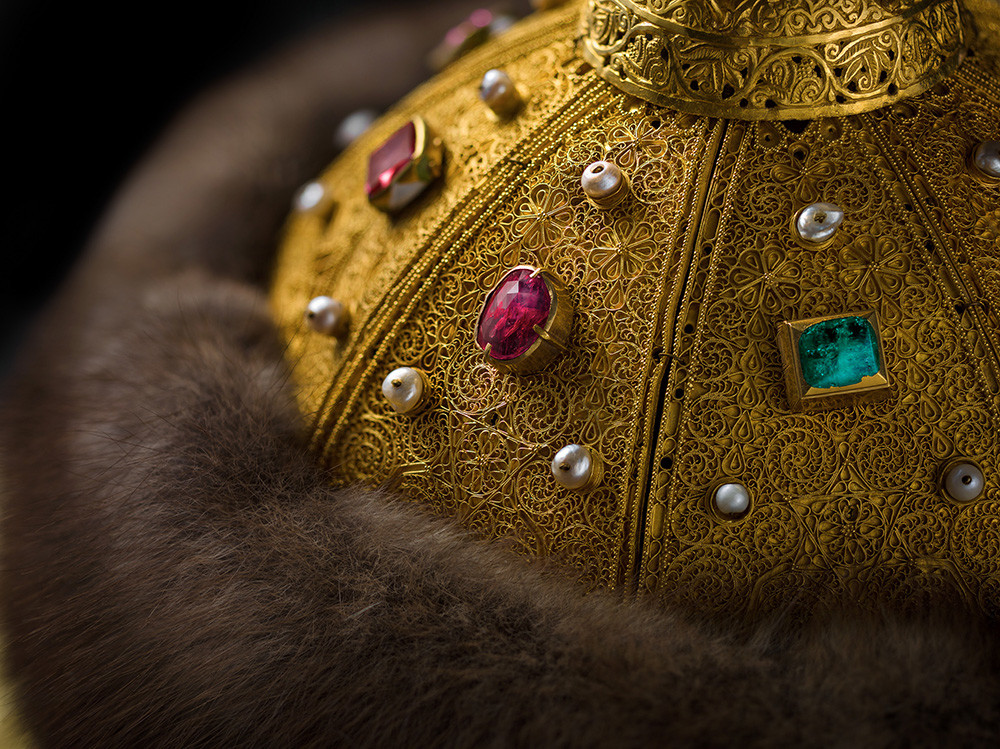
The crown got its name from a late 15th century legend whereby it was a Byzantine emperor's gift to Vladimir Monomakh, a grand prince of Kievan Rus.
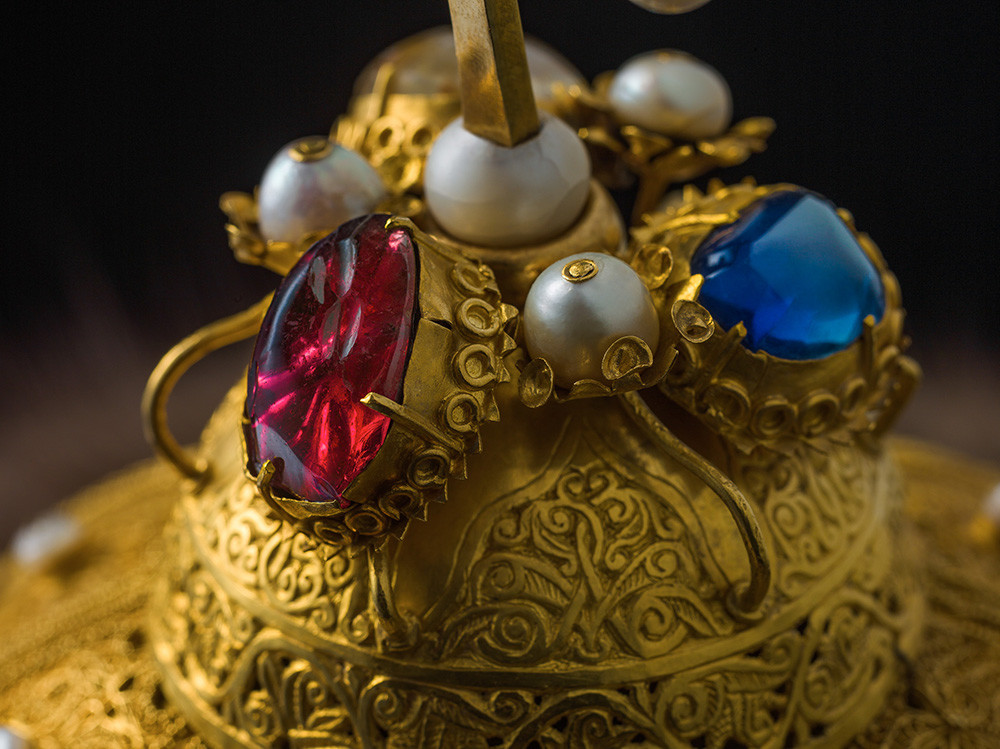
It was used in the coronation of the Russian tsars up until the late 17th century.

This embossed golden icon features a precious cross made in the 11th century from a fragment of the True Cross, and a panagia with three stones from the Holy Sepulcher and the cover of Jesus's tomb.
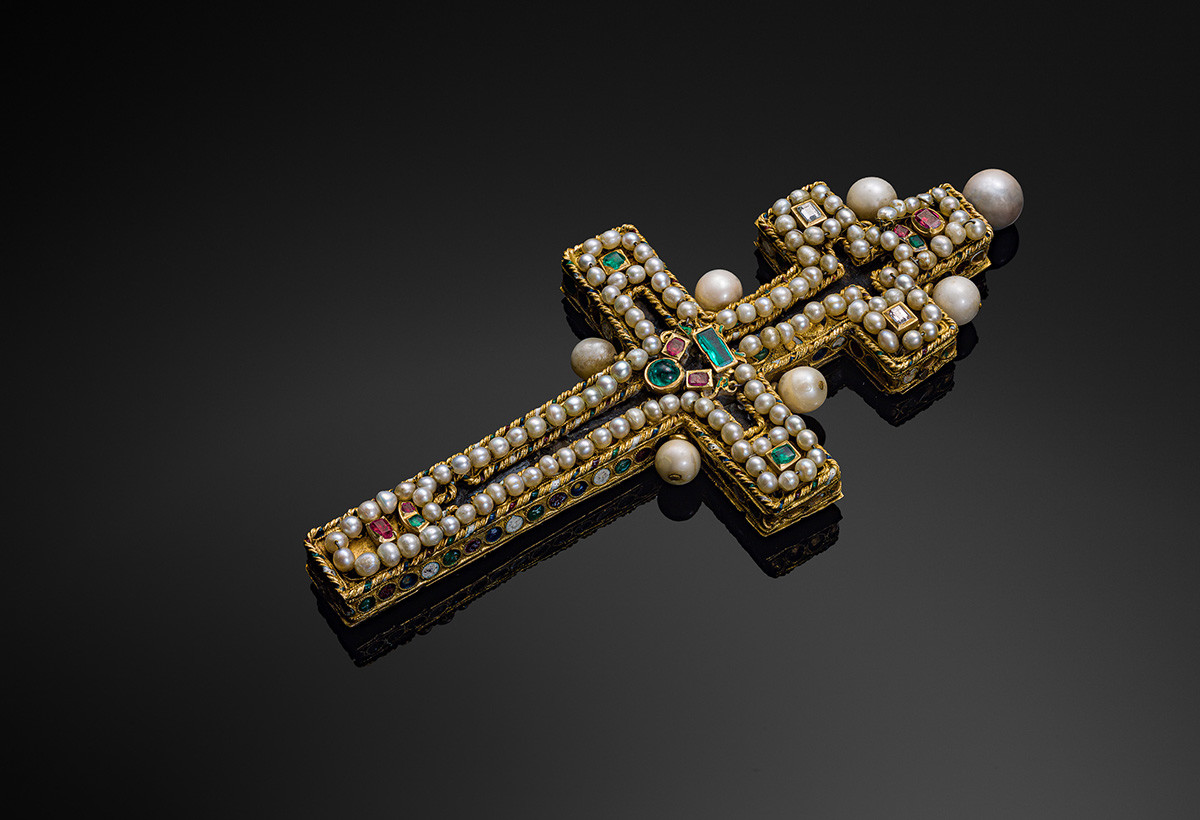
It was brought to Moscow by Boris Godunov in the early 1600s.
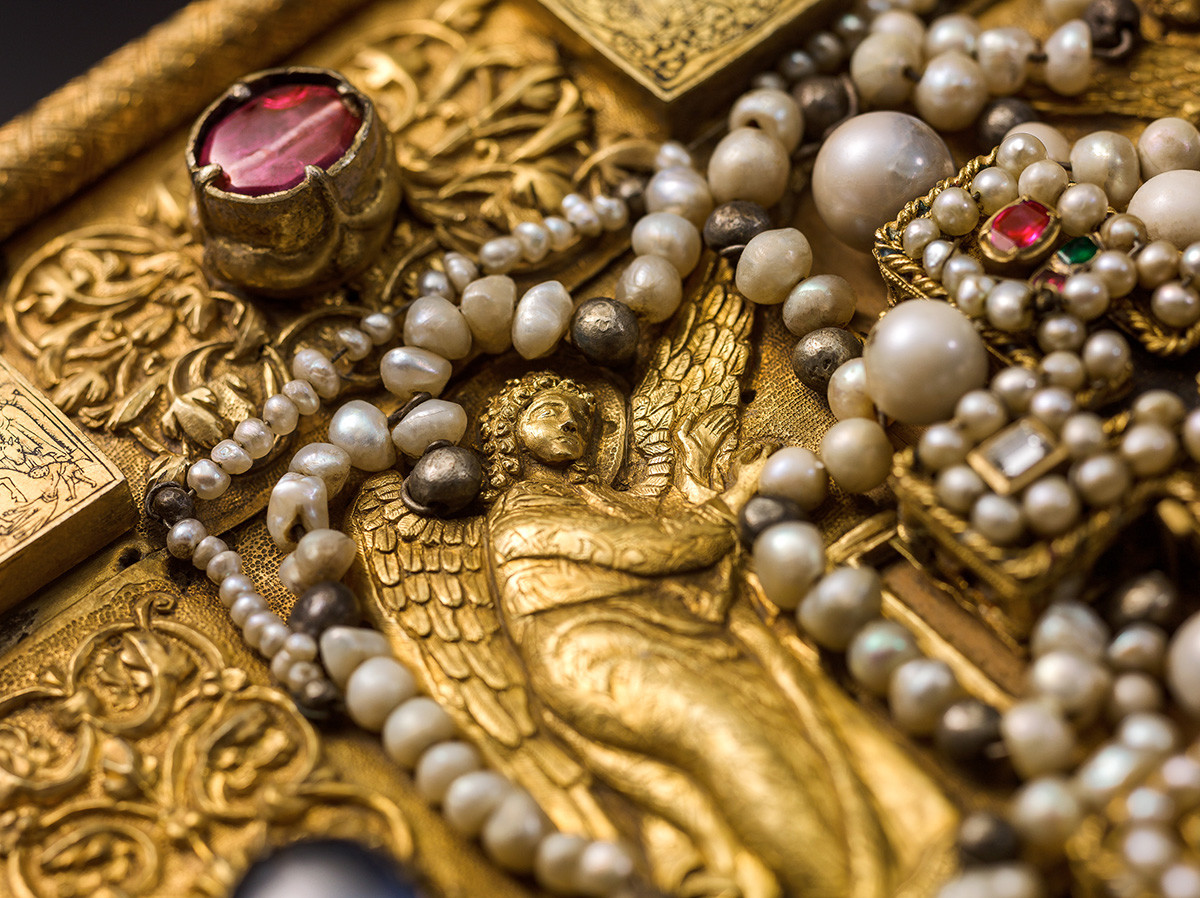
The cross was used in coronation ceremonies of the Russian tsars from 1547 onward.

This magnificent throne made of gold plates inlaid with rubies, turquoise and tourmalines belonged to Tsar Boris Godunov, and was immortalized in the famous opera by Modest Mussorgsky.
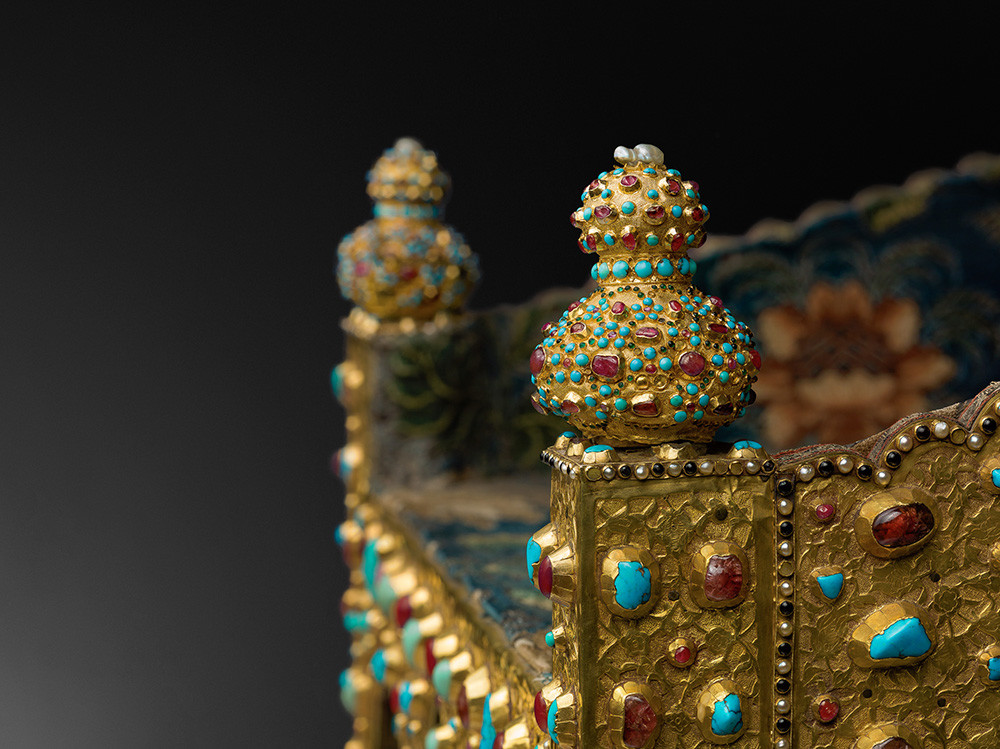
Made by Persian craftsmen, it was a gift from Shah Abbas I and was in use for almost two centuries.
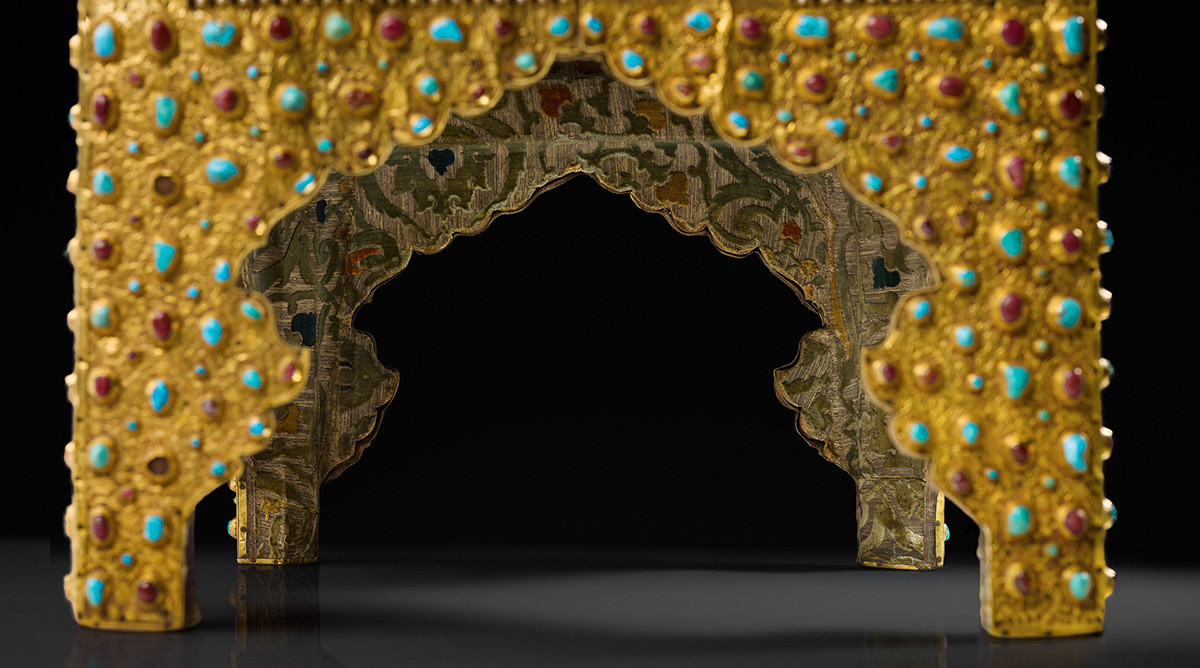
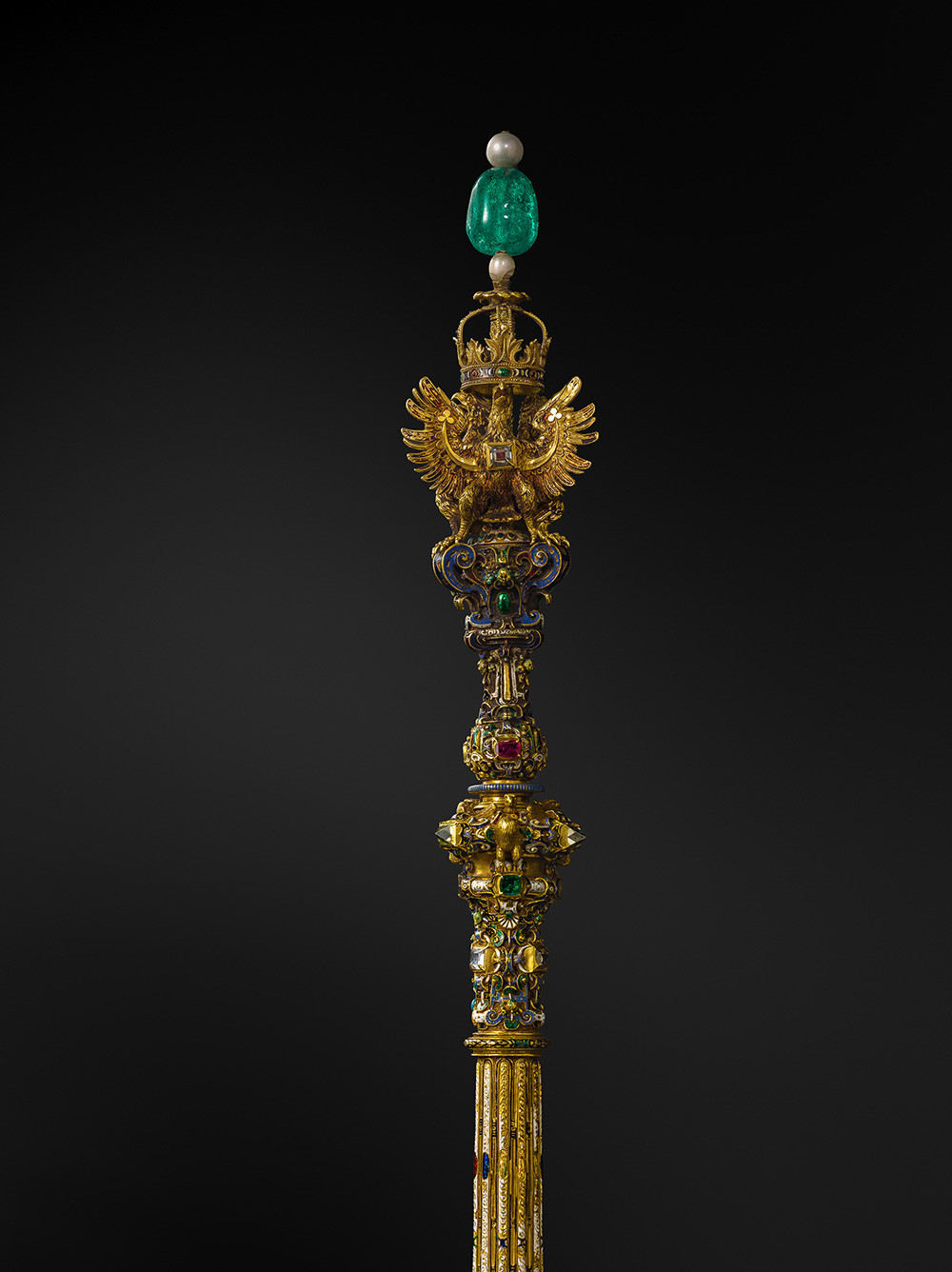
This is one of several scepters in the Armory collection. It was used in the coronation of Tsar Mikhail Fyodorovich in 1613.
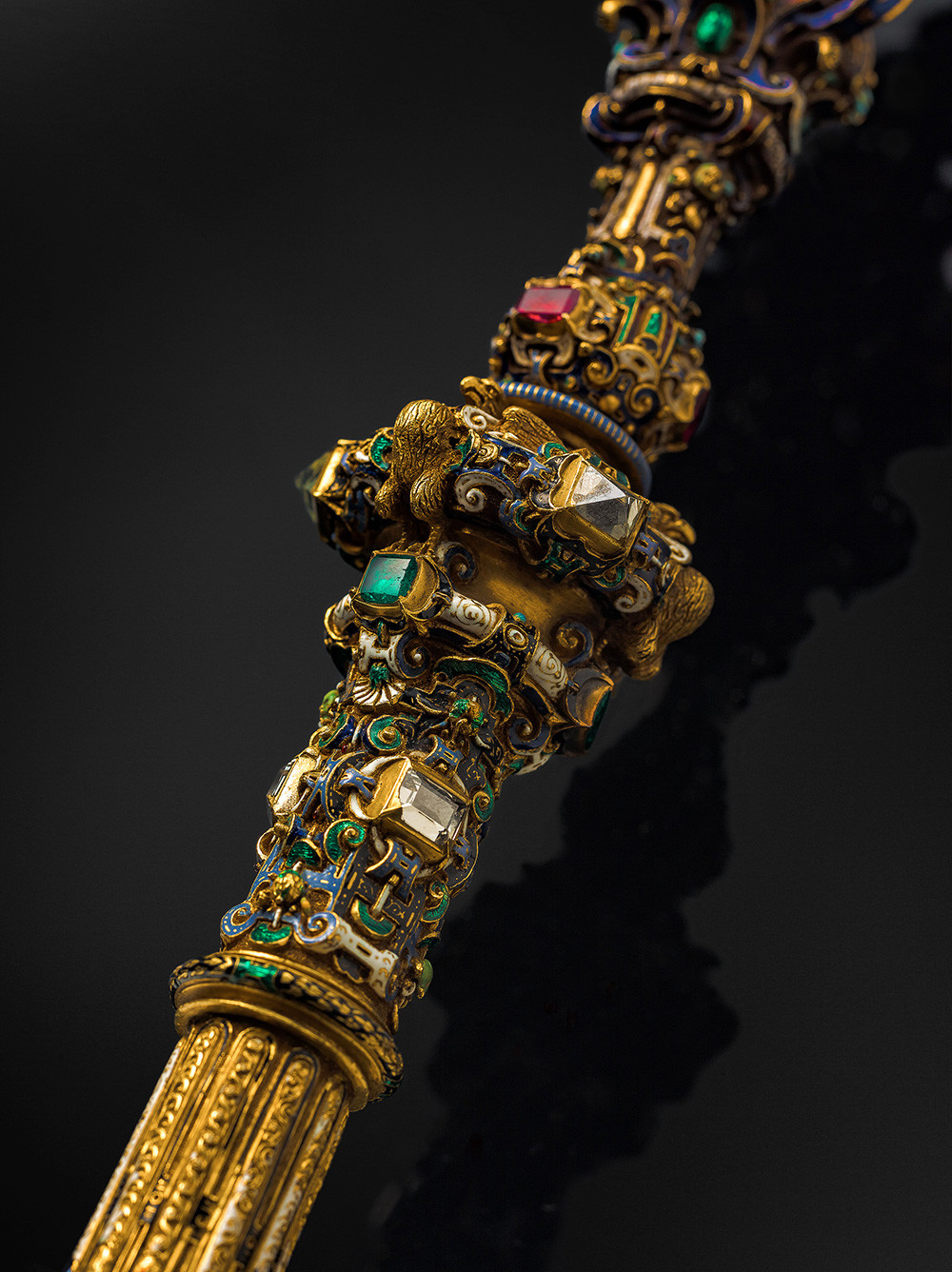
The precious item was created by West European jewelers in the Late Renaissance style.

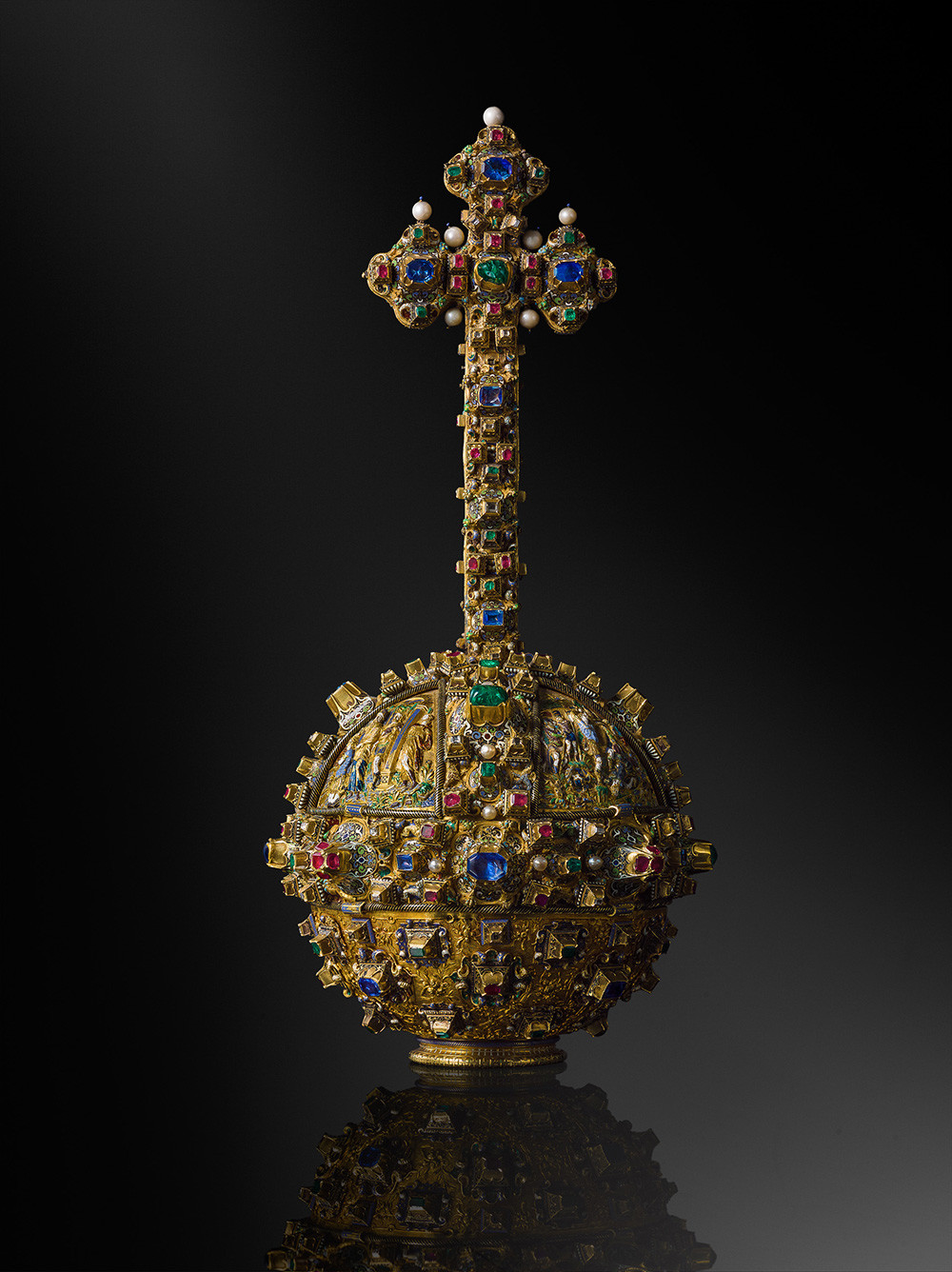
The scepter's companion – the orb - also comes from Western Europe of the early 17th century.
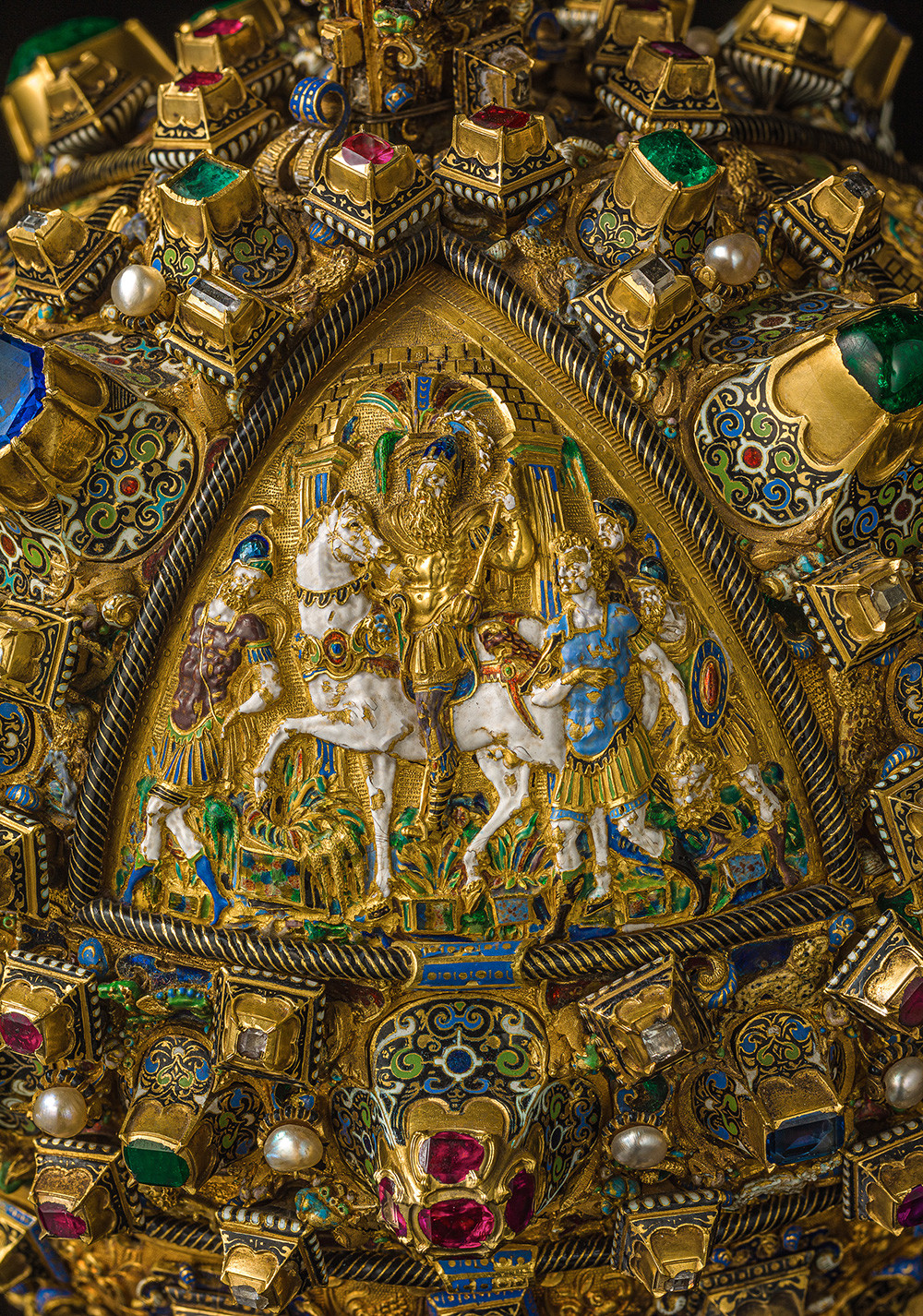
Its upper section carries reliefs depicting scenes from the life of biblical King David.
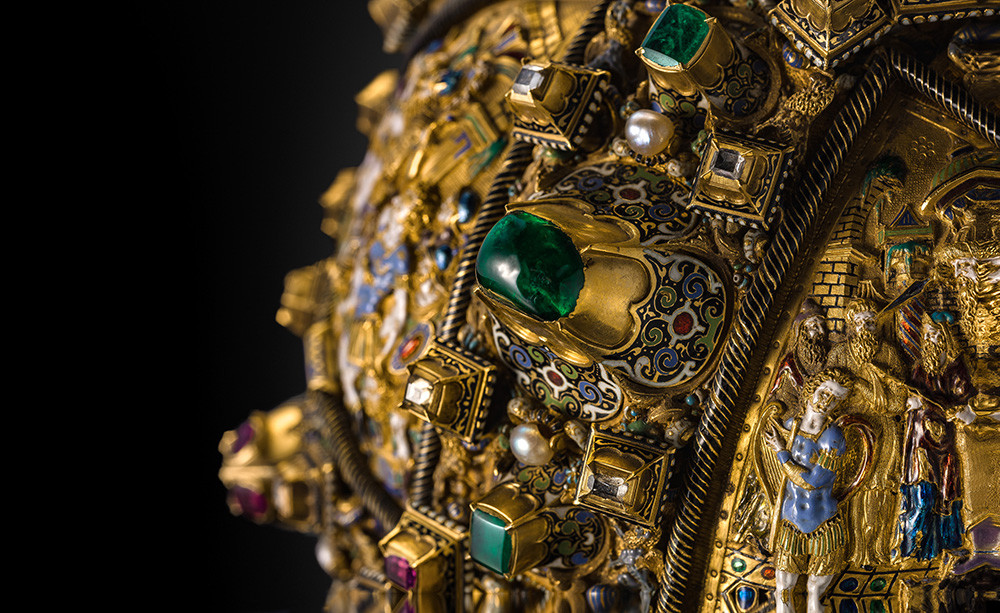
The orb is decorated with large gems - diamonds, emeralds, rubies and sapphires.
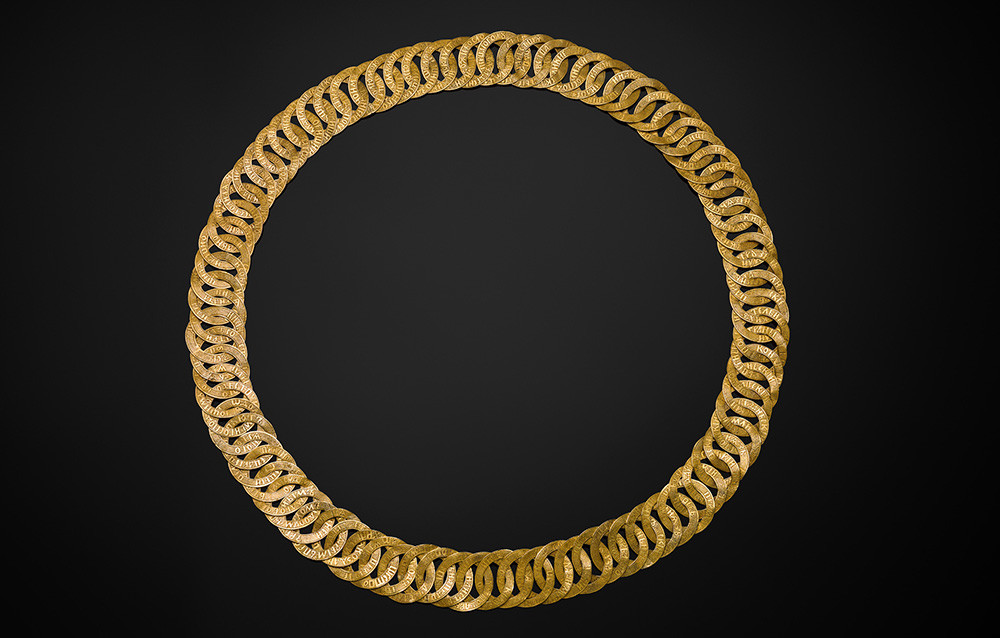
This golden chain of 88 links belonged to the first representative of the Romanov dynasty - Tsar Mikhail Fyodorovich.
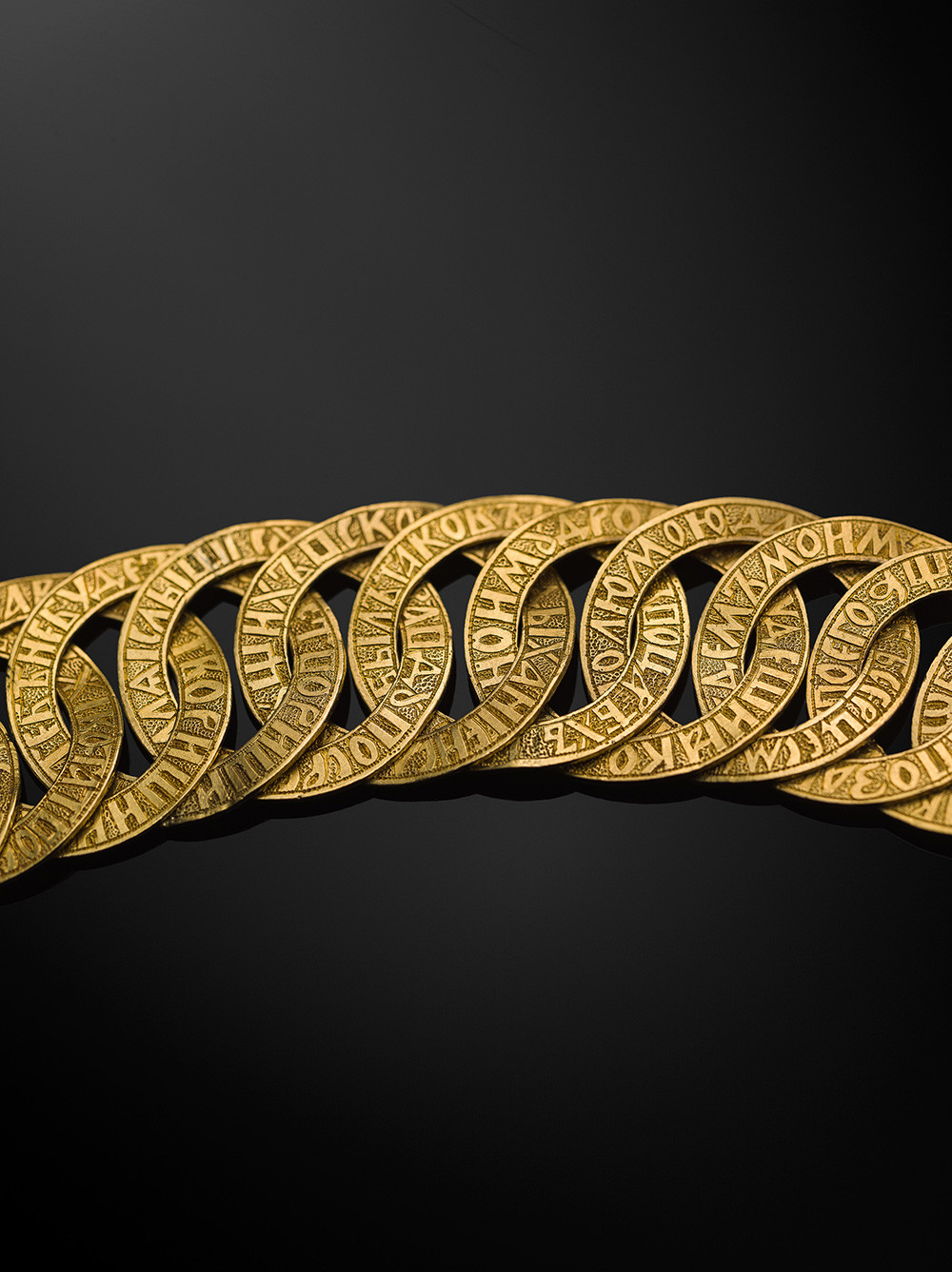
An inscription is engraved on each link, and together they make up a single text, which, among other things, features a prayer to the Holy Trinity and a complete list of Russia's lands at the time.
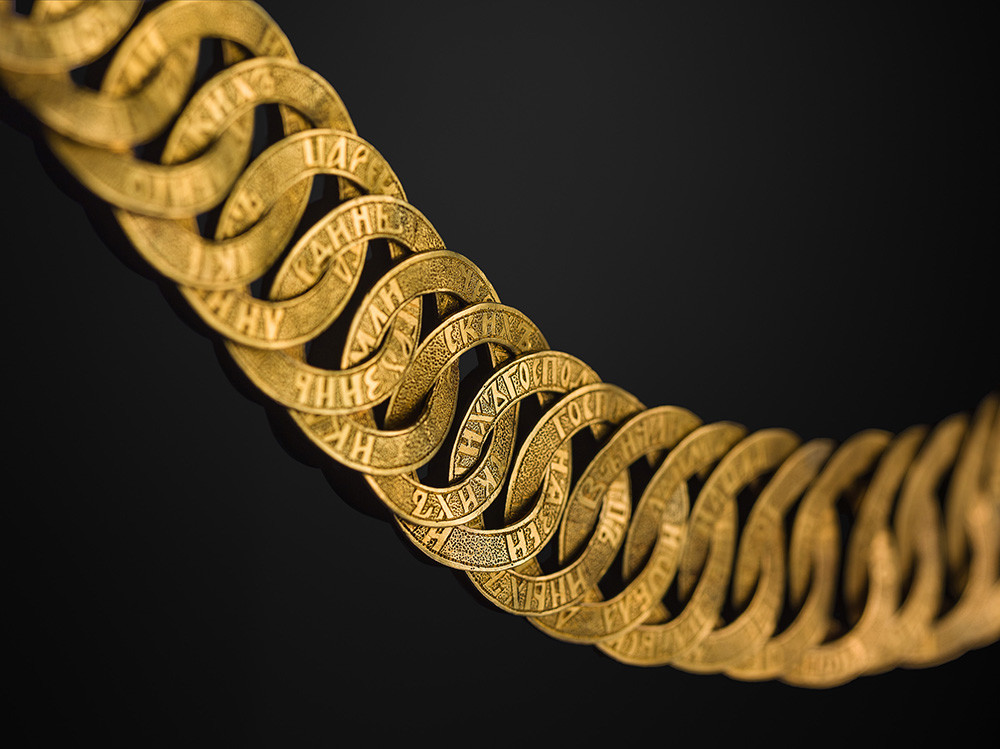
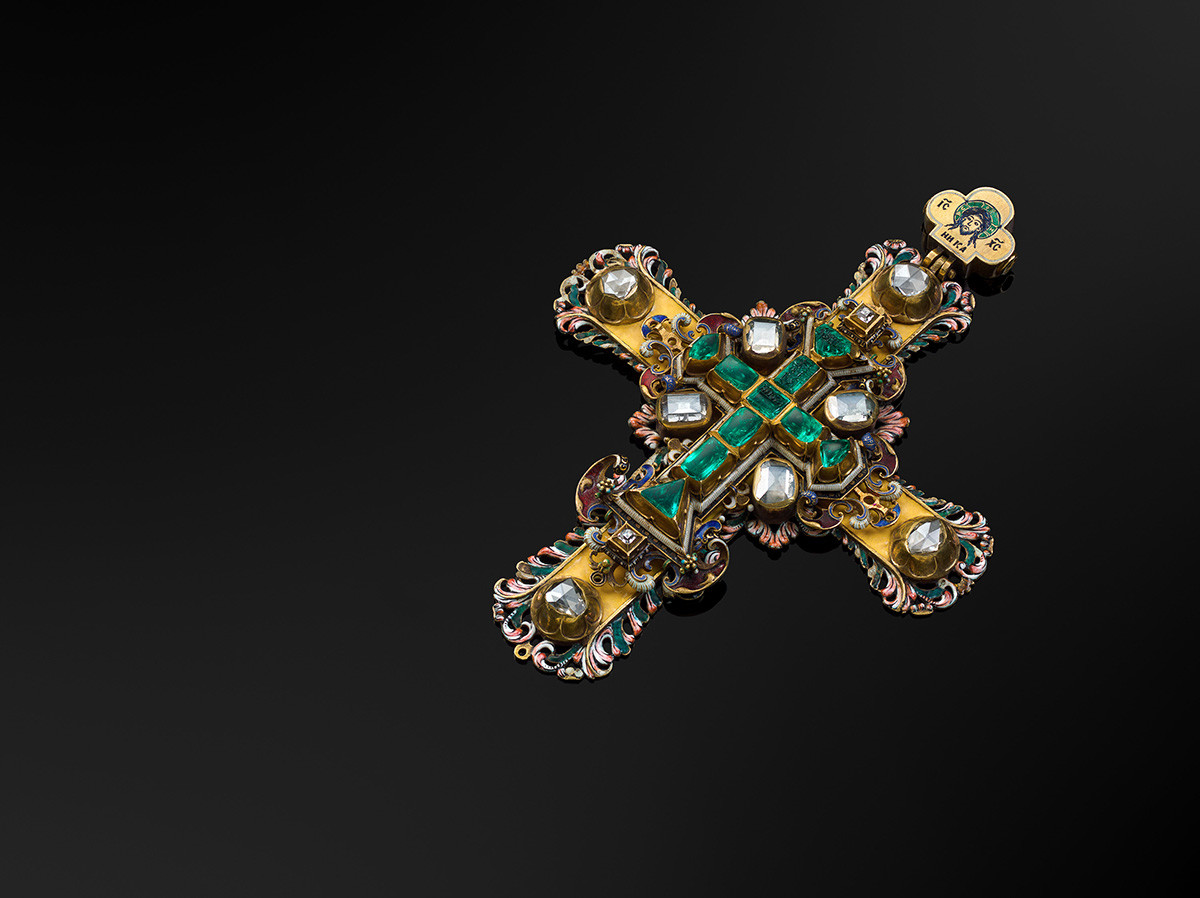
This diamond cross was made in the Kremlin workshops in 1662 and formed part of the regal Grand Attire.
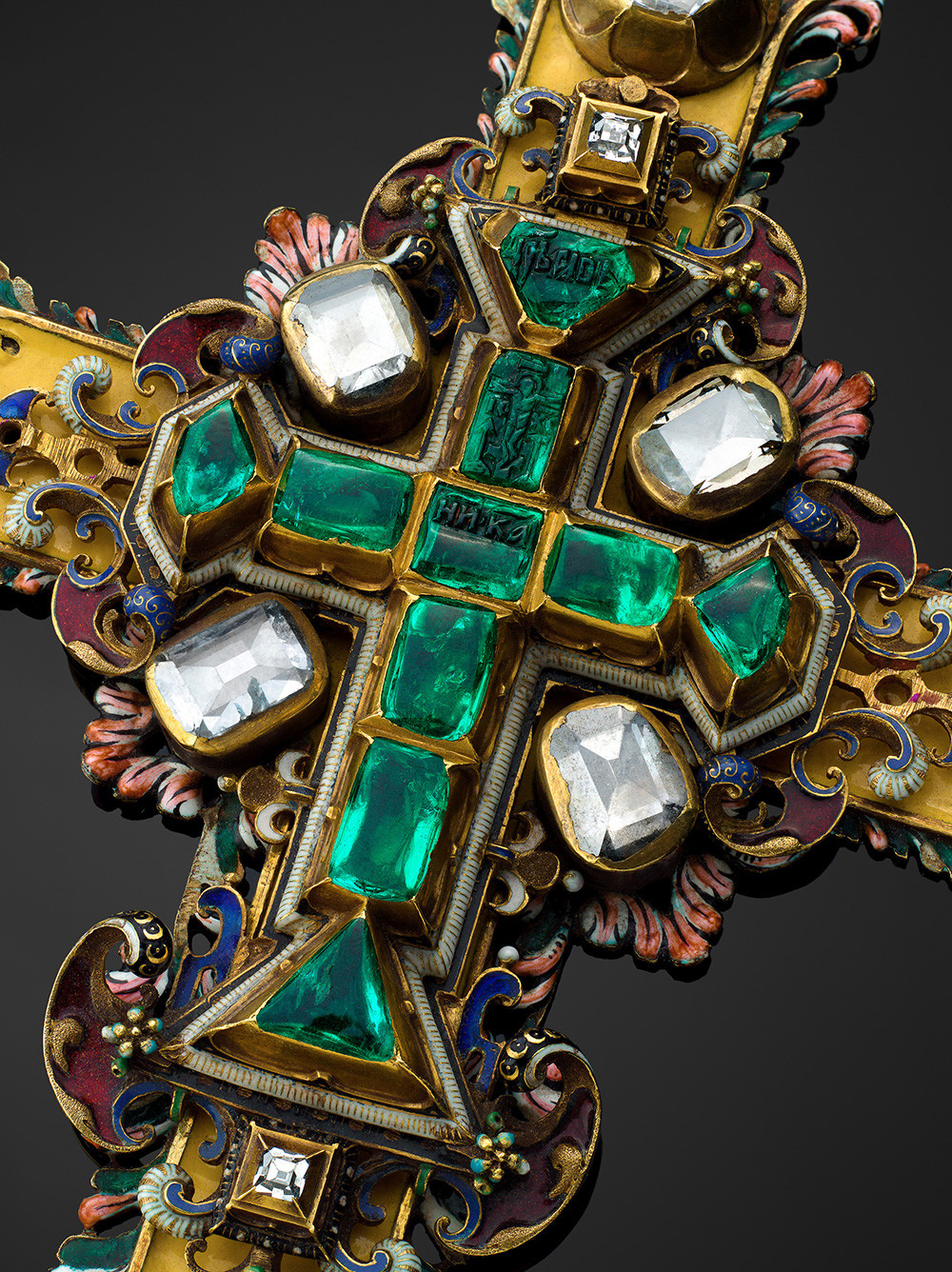
This item has a secret: in its center is another, smaller removable cross.
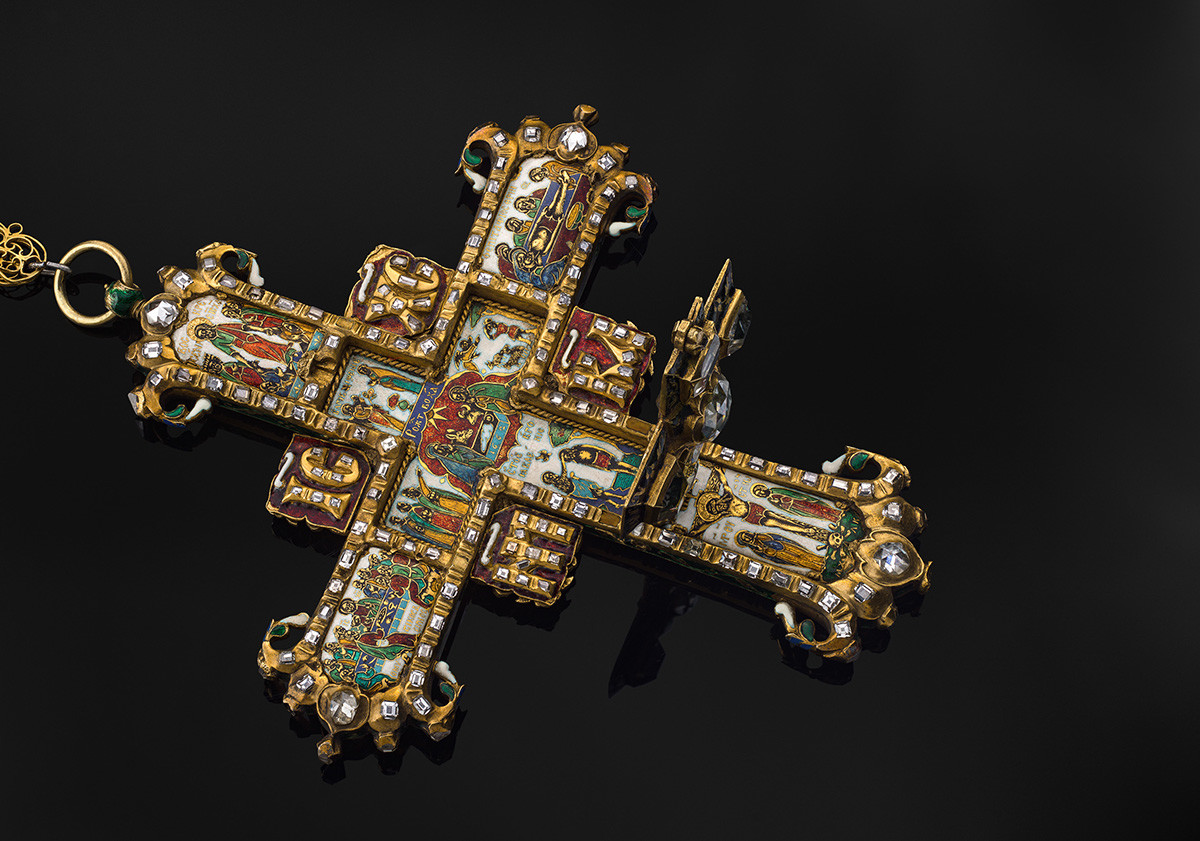
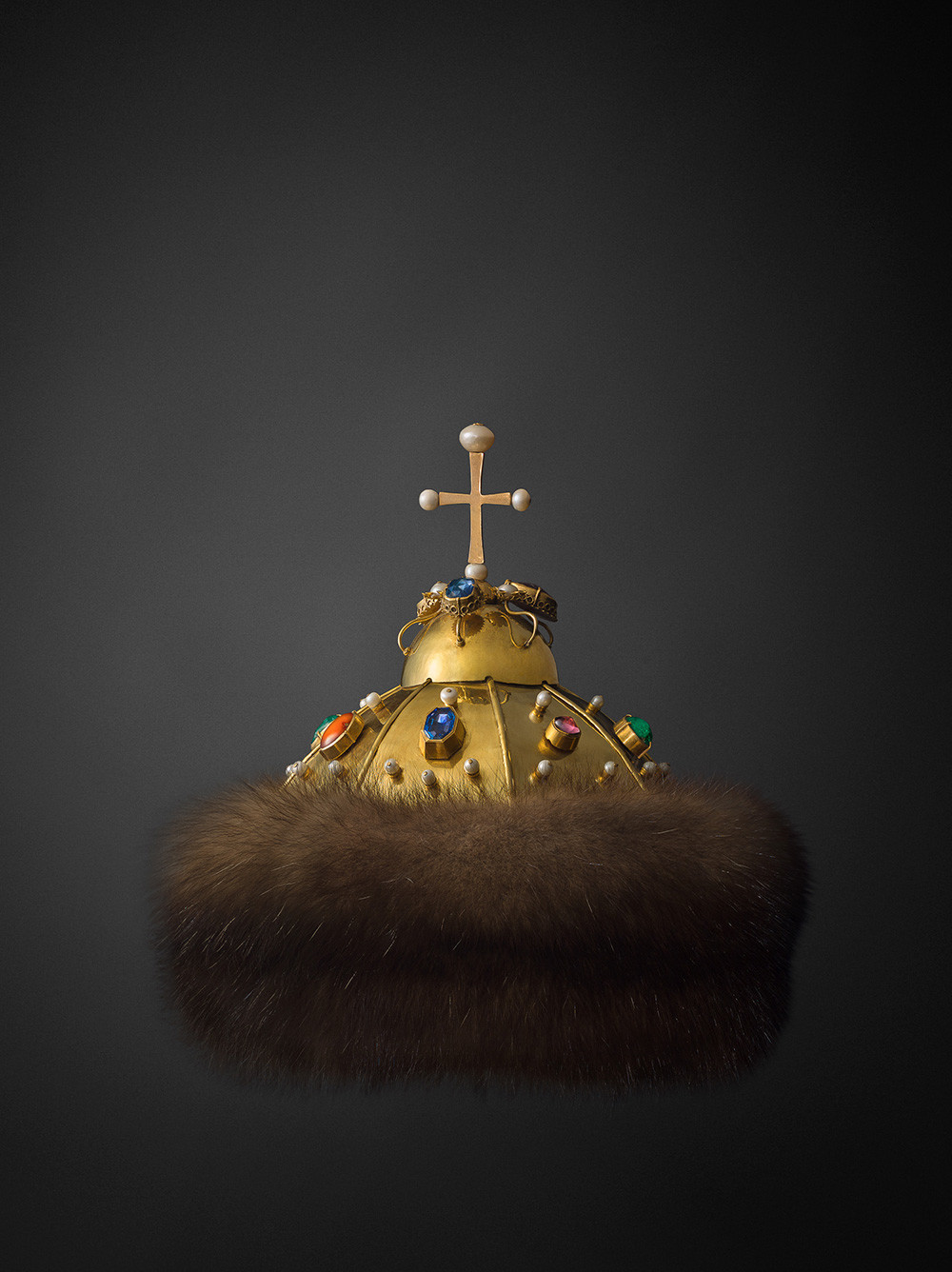
After Tsar Fyodor Alekseevich died childless in 1682, as a result of the boyars' intrigues, the throne was temporarily divided between two of his younger brothers, Ivan and Peter.
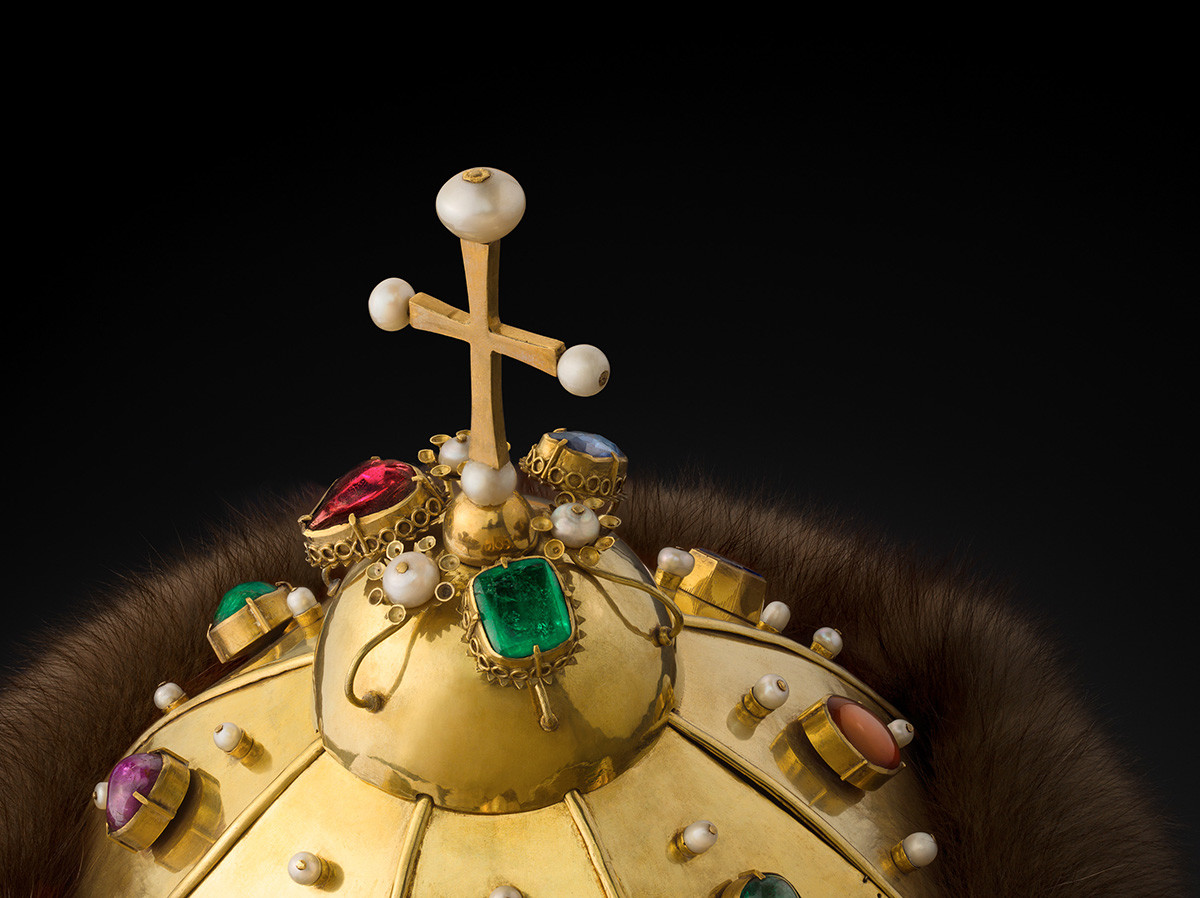
At the coronation ceremony, 15-year-old Ivan, “weak of health and wits”, got the original Crown of Monomakh (No. 1 on our list), while for 10-year-old Peter, this equally precious copy was made.
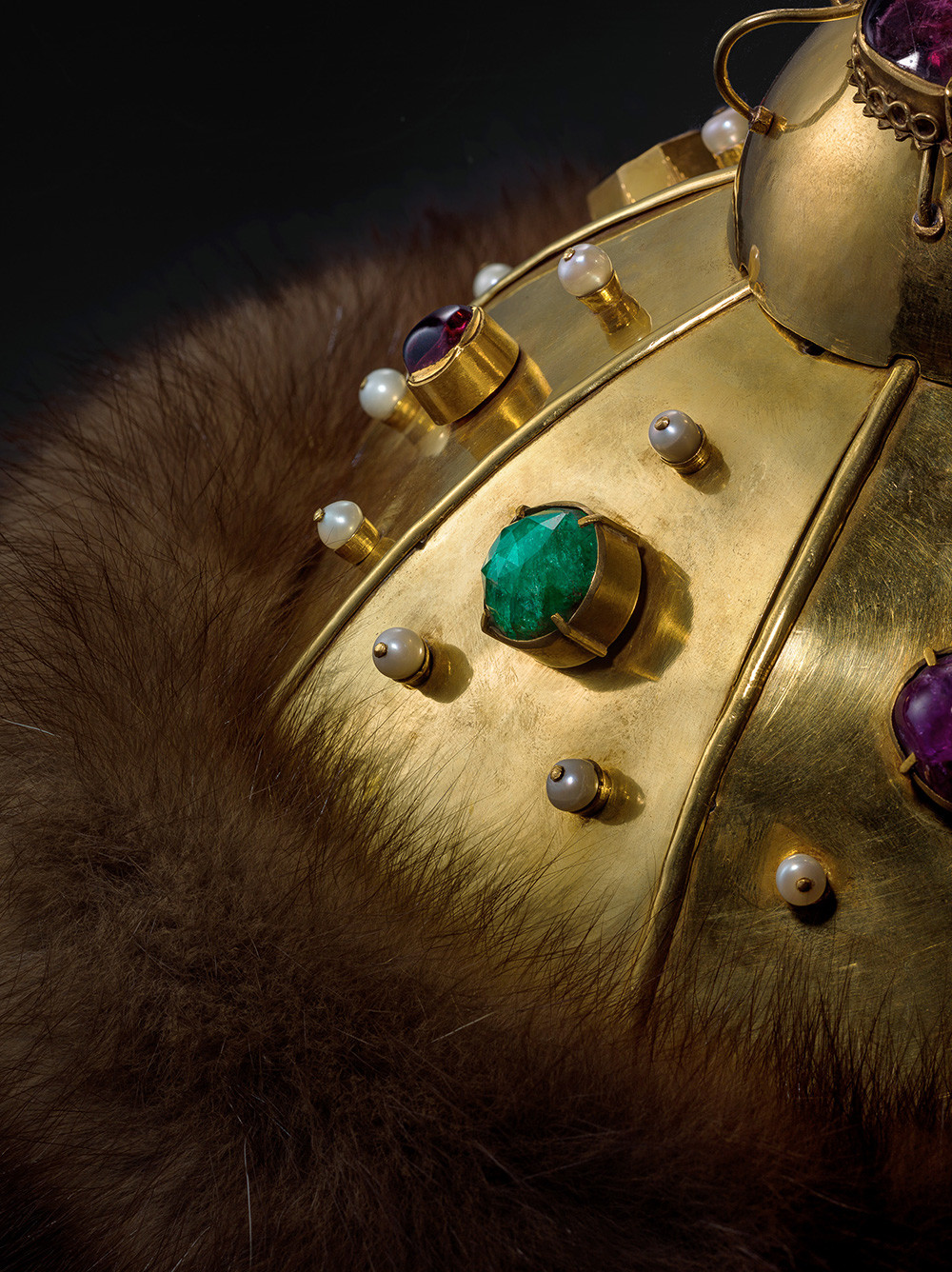
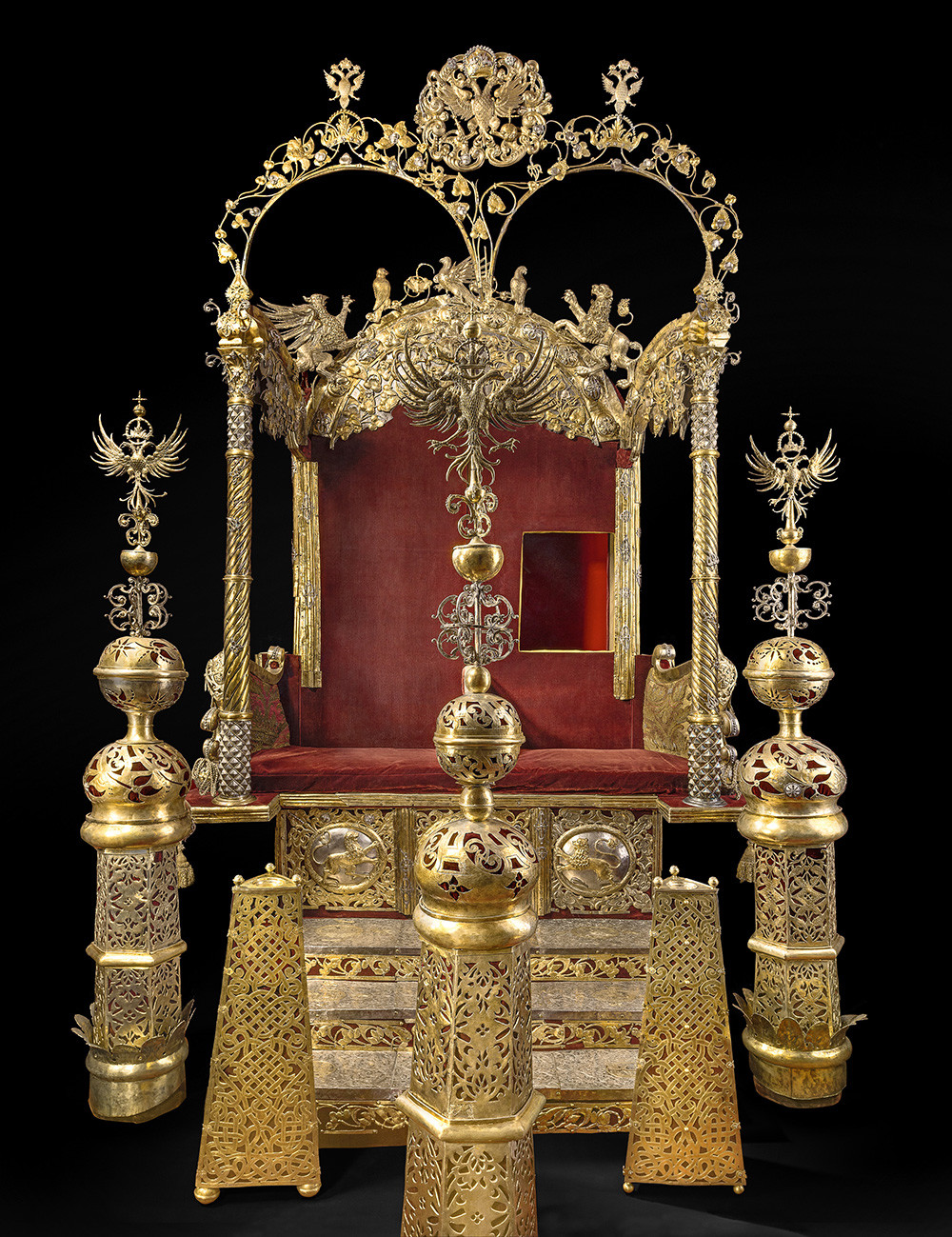
This unusual silver double throne was made in the Kremlin workshops for Ivan and Peter.
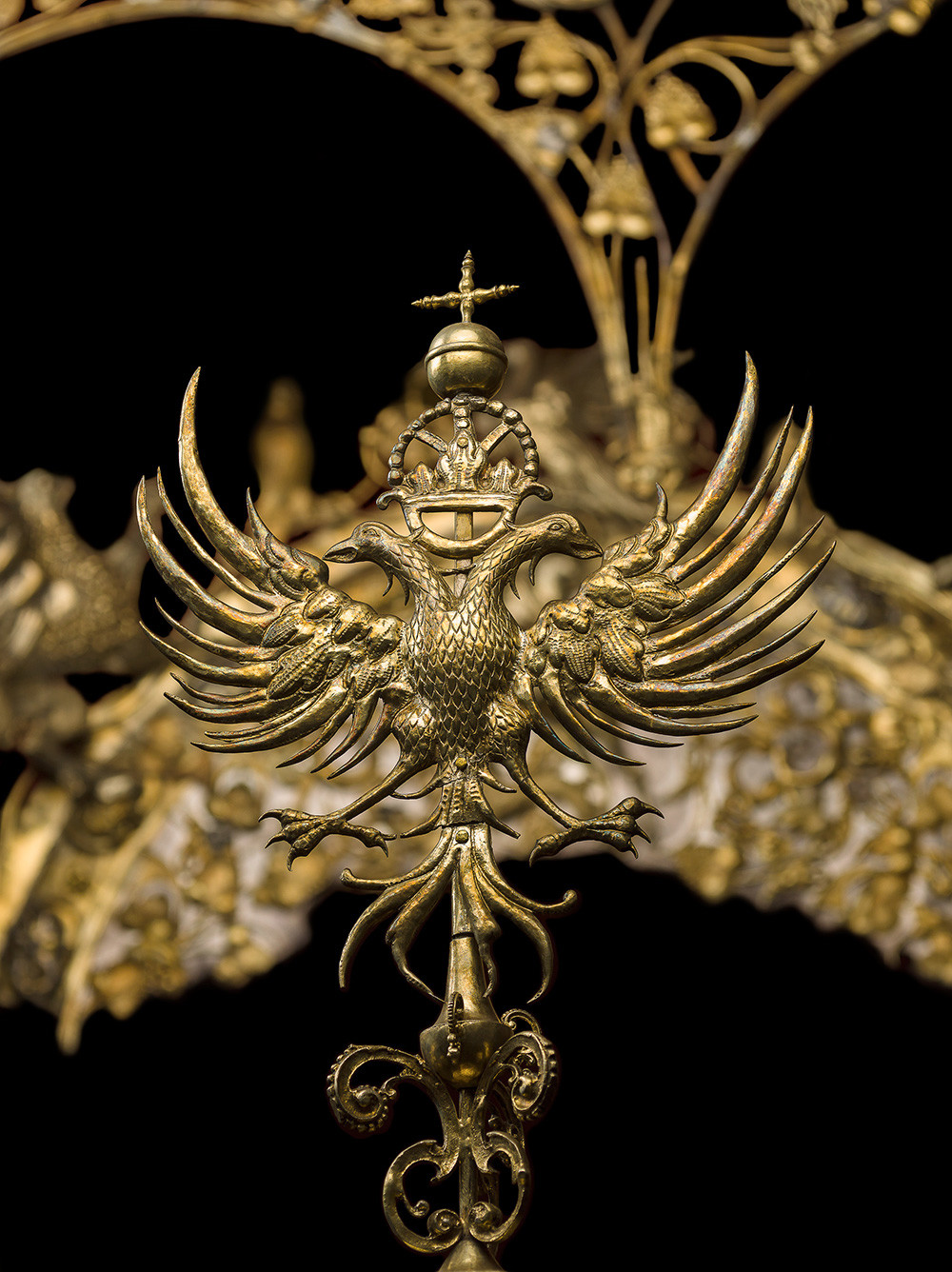
The magnificent item, which looks more like a baroque pavilion, has a secret third seat with an opening hidden behind the seat of 10-year-old Tsar Peter.
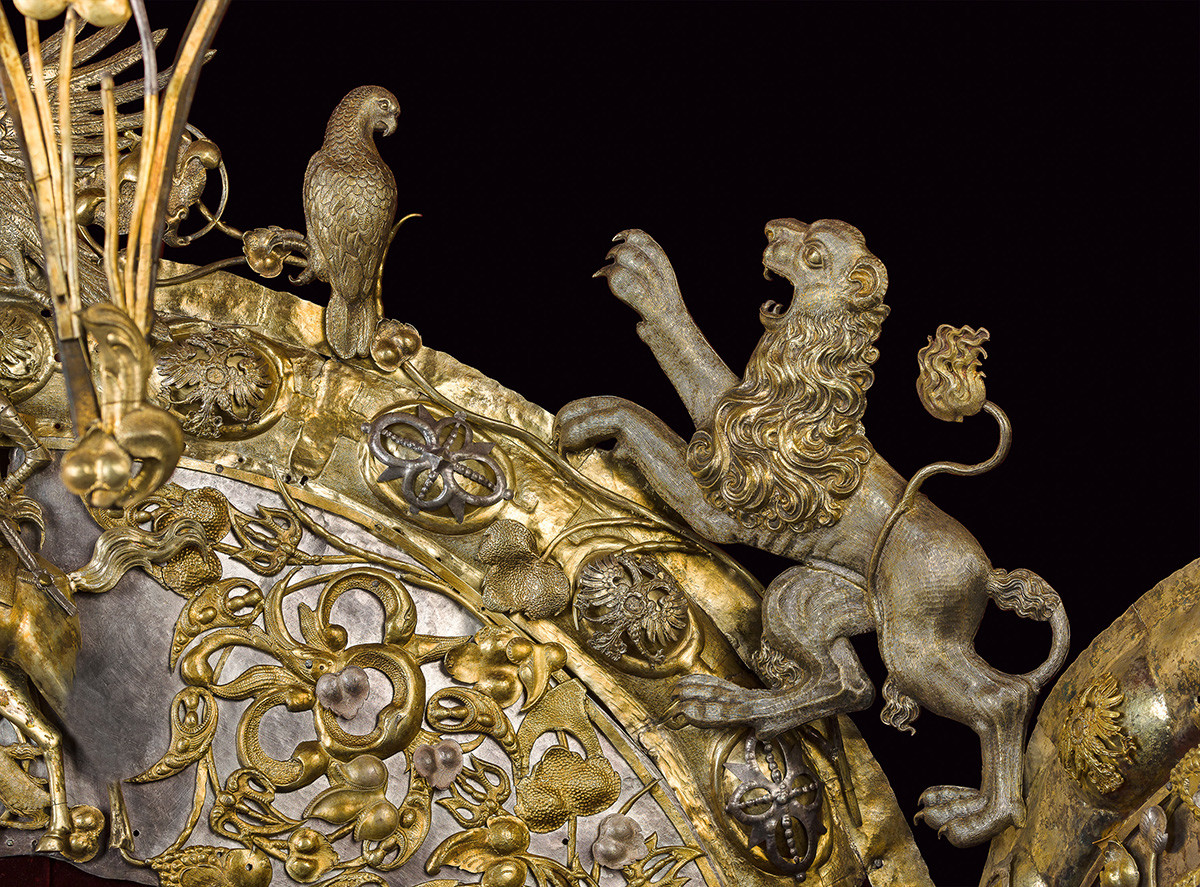
This secret seat was intended for the young tsar's mentor.
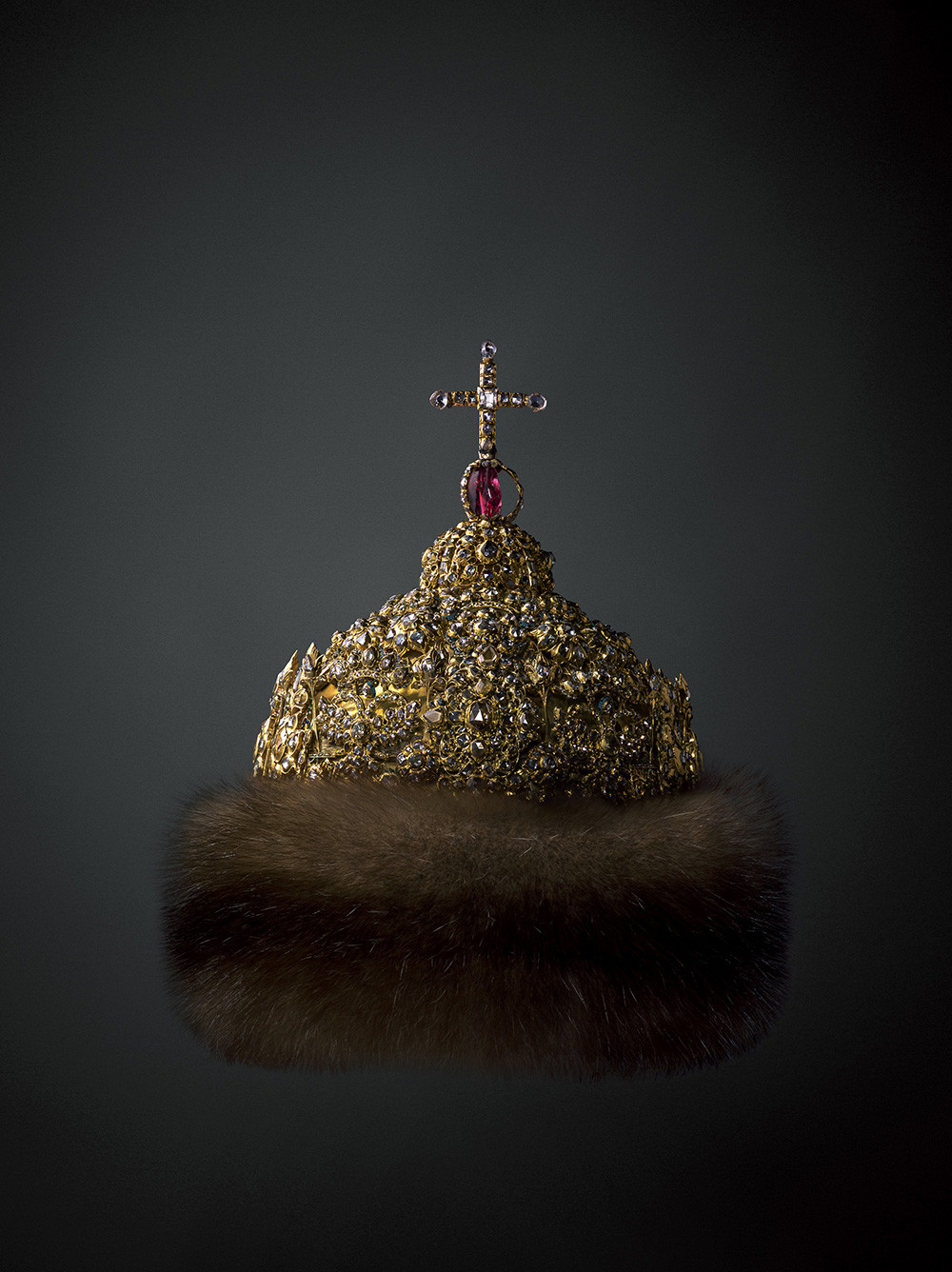
This ceremonial crown belonged to Tsar Ivan Alekseevich, brother of Peter the Great, who ruled from 1682 to 1696.
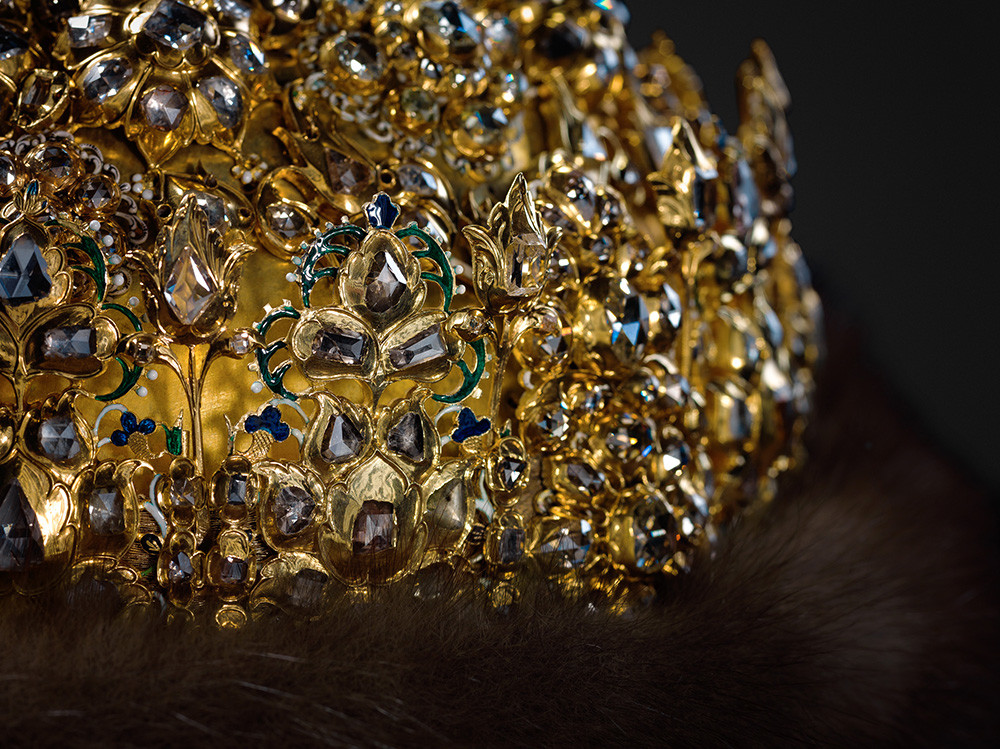
Interestingly, it was made in the Kremlin workshops out of jewelry and diamonds of previous rulers.
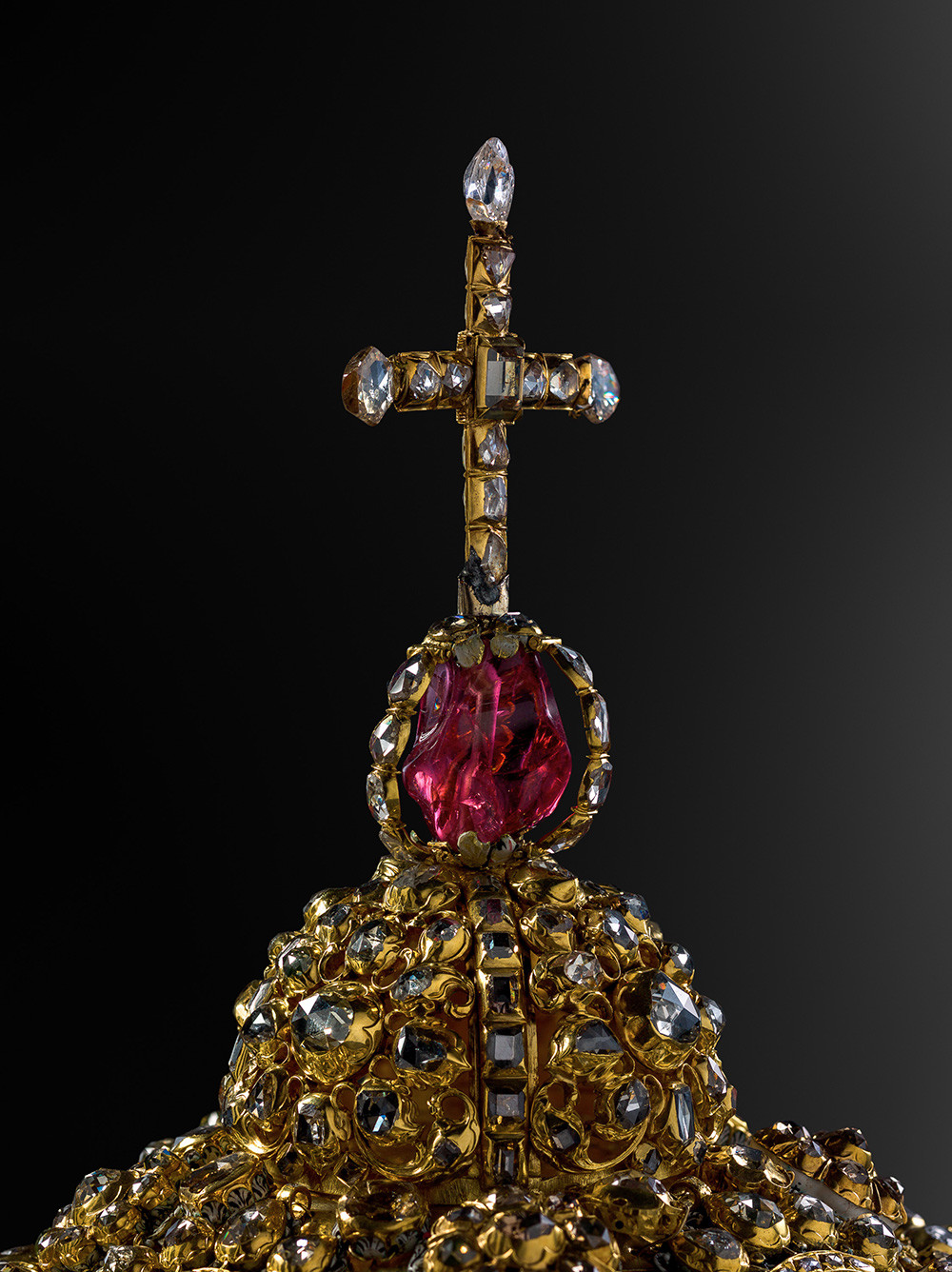
You can find out more about these and other unique treasures from the Armory collection in the album, “State Regalia of the Muscovite Tsardom”, which has been published in English by the Moscow Kremlin Museum.
If using any of Russia Beyond's content, partly or in full, always provide an active hyperlink to the original material.
Subscribe
to our newsletter!
Get the week's best stories straight to your inbox